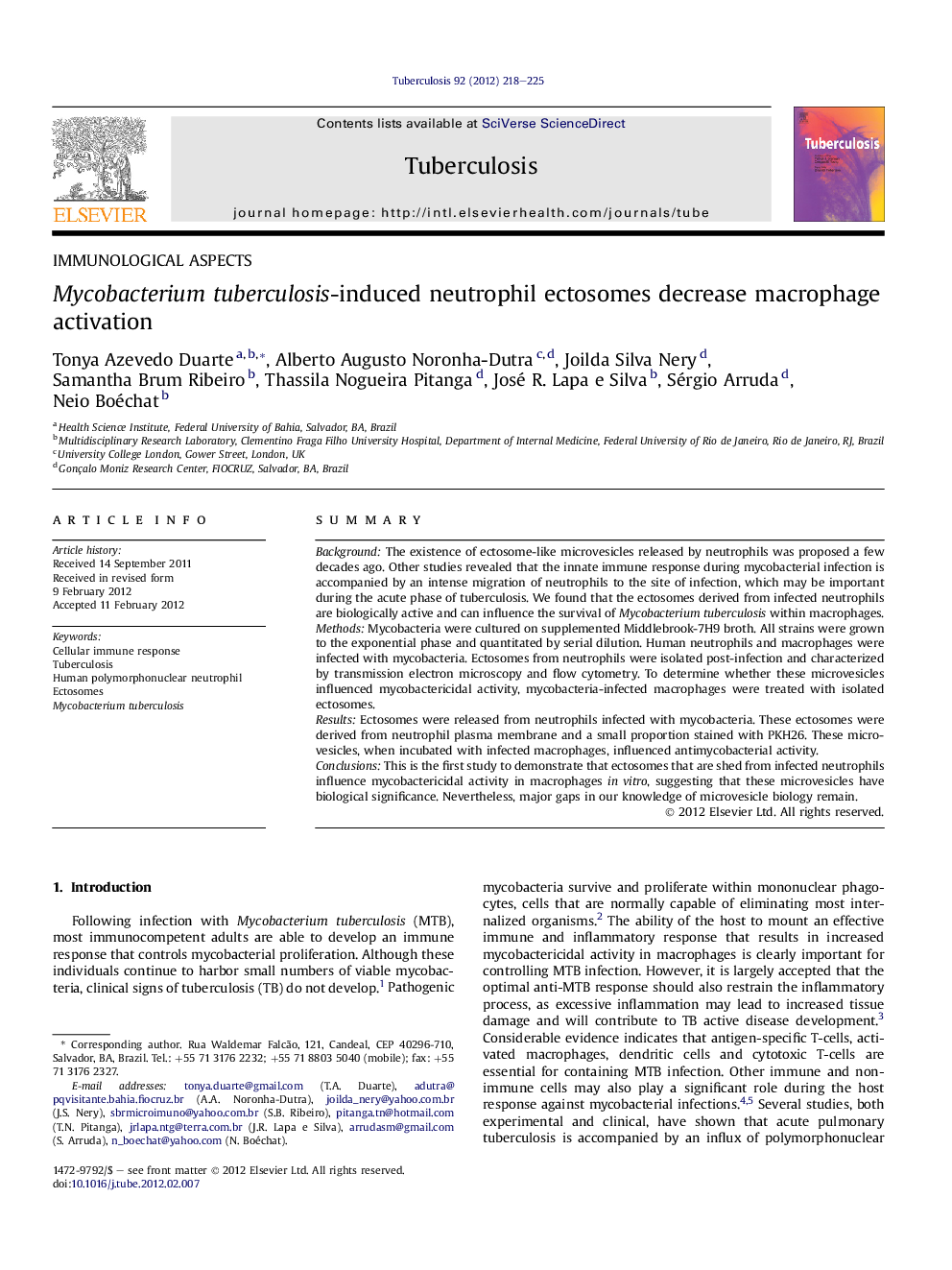| Article ID | Journal | Published Year | Pages | File Type |
|---|---|---|---|---|
| 2401575 | Tuberculosis | 2012 | 8 Pages |
SummaryBackgroundThe existence of ectosome-like microvesicles released by neutrophils was proposed a few decades ago. Other studies revealed that the innate immune response during mycobacterial infection is accompanied by an intense migration of neutrophils to the site of infection, which may be important during the acute phase of tuberculosis. We found that the ectosomes derived from infected neutrophils are biologically active and can influence the survival of Mycobacterium tuberculosis within macrophages.MethodsMycobacteria were cultured on supplemented Middlebrook-7H9 broth. All strains were grown to the exponential phase and quantitated by serial dilution. Human neutrophils and macrophages were infected with mycobacteria. Ectosomes from neutrophils were isolated post-infection and characterized by transmission electron microscopy and flow cytometry. To determine whether these microvesicles influenced mycobactericidal activity, mycobacteria-infected macrophages were treated with isolated ectosomes.ResultsEctosomes were released from neutrophils infected with mycobacteria. These ectosomes were derived from neutrophil plasma membrane and a small proportion stained with PKH26. These microvesicles, when incubated with infected macrophages, influenced antimycobacterial activity.ConclusionsThis is the first study to demonstrate that ectosomes that are shed from infected neutrophils influence mycobactericidal activity in macrophages in vitro, suggesting that these microvesicles have biological significance. Nevertheless, major gaps in our knowledge of microvesicle biology remain.
